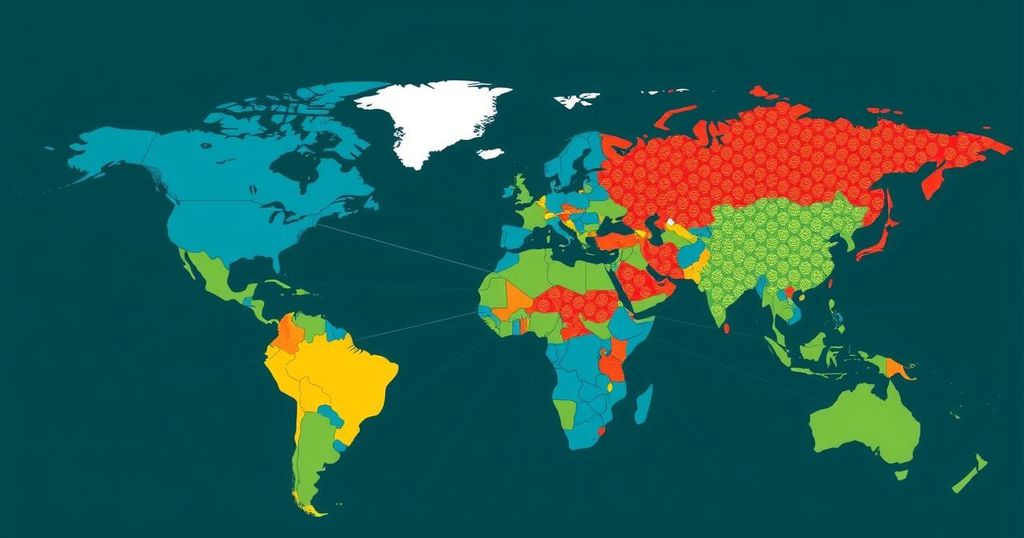The article discusses the initiation of climate change compensation payments from wealthier nations to poorer nations, exemplified by the aid received by Christopher Bingala, a flood victim in Malawi. As Cyclone Freddy dramatically affected the region, the need for financial support grew more apparent. The new loss and damage funding aims to help poorer countries recover from climate-related disasters, although the pledges currently fall short of projected needs, amid ongoing discussions at the COP29 climate summit.
In the aftermath of Cyclone Freddy, which wreaked havoc across southern Malawi, particularly affecting the life of subsistence farmer Christopher Bingala, richer nations have begun compensating poorer nations for climate change impacts. With a payment of approximately $750, Bingala was able to rebuild his home after the cyclone nearly destroyed everything he owned. This funding represents one of the initial instances of loss and damage compensation, designed to assist low-income countries most severely impacted by climate-related disasters, despite their minimal contribution to global emissions.
In 2023, Cyclone Freddy resulted in an extraordinary amount of rainfall for Malawi, displacing approximately 650,000 individuals. Many communities faced dire food shortages, and Bingala recounted his family’s struggle to survive amidst the devastation. Fortunately, with the aid of cash assistance from Scotland’s government, he managed to relocate and improve his family’s living conditions, despite ongoing challenges such as re-enrolling his children in school.
This compensation initiative marks a pioneering step towards addressing the urgent financial needs of developing nations affected by climate change. Leading powers, including the European Union and the United States, have pledged funds totaling around $720 million to support these efforts, although experts warn that this amount may not be sufficient given the increasing frequency and severity of climate-related disasters.
During the ongoing COP29 climate summit in Baku, Azerbaijan, negotiations continue regarding appropriate compensation for developing nations, emphasizing the need for a comprehensive climate finance package. As nations grapple with the escalating consequences of climate change, leaders from developing countries, such as Philip Davis, Prime Minister of the Bahamas, are calling for responsible action from wealthier nations, urging them to acknowledge their historic emissions contributions and provide necessary resources for remediation efforts.
The situation in Malawi highlights an urgent and growing necessity for established frameworks to offer financial support for loss and damage. Given that many low-income nations lack protective mechanisms against extreme weather events, funding is crucial not only for disaster recovery but also for long-term adaptation measures. The need for such support is projected to escalate, with estimates indicating a potential requirement of $250 billion per year by 2030. It is imperative that global leaders recognize the interlinked nature of humanitarian crises and proactively collaborate to mitigate future disasters while supporting the most vulnerable communities worldwide.
The context of this article revolves around climate change and its disproportionate effects on low-income countries. The recent Cyclone Freddy in Malawi serves as a pertinent example of the destructive impact of extreme weather, which these nations face despite contributing minimally to climate change. In 2022, wealthier countries committed to establishing a fund to assist developing nations in covering climate change-related damages. This initiative signifies a larger recognition of the ethical responsibility of wealthier nations to support those adversely affected by climate-related events. The newly introduced loss and damage compensation aims to provide immediate relief and facilitate recovery in addition to addressing long-term challenges posed by climate change, such as relocation and disaster preparedness.
In conclusion, as climate change continues to exacerbate natural disasters, the commitment from wealthier nations to provide financial aid to low-income countries, particularly through loss and damage funding, is both vital and urgent. The case of Christopher Bingala illustrates the immediate impact such assistance can have on rebuilding lives and communities. However, to ensure sustainability and resilience, ongoing dialogue at international forums like COP29 is essential for establishing comprehensive funding strategies and adapting to new climate realities. The stakes are high, and the responsibility lies with global leaders to act decisively for collective benefit.
Original Source: www.knba.org






